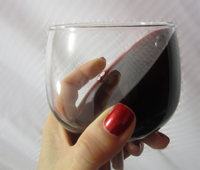For many women who enjoy a glass of wine, research showing that relatively small amounts of alcohol can raise their risk of breast cancer are disconcerting, to say the least. And confusing, too.
How much drinking is OK? Isn’t a glass of red wine a day good for your heart — and couldn’t that be more important?
In the past five or 10 years, knowledge about alcohol and breast cancer has been changing as studies produce new results and are publicized, sometimes over-dramatically, in the media. At the same time, there’s growing evidence that moderate drinking can be healthy for the heart.

Research on alcohol and breast cancer is relatively recent, and many early studies came from Europe, where women tend to drink more than in the United States, says Dr. Wendy Chen, a breast cancer specialist at Dana-Farber.
Last November, Chen and colleagues at Brigham and Women’s Hospital reported in the Journal of the American Medical Association that women who drank as little as three to six glasses of wine or other alcoholic beverages a week increased their breast cancer risk by about 15 percent.
The findings caught many women by surprise. Last they had heard, doctors were saying women (and men) could safely have one drink a day. Now they were being warned that even this level elevated their breast cancer risk.
Although some researchers contend there is no “safe level” of alcohol for breast cancer risk, others argued that one daily drink wasn’t harmful. (One drink is defined as 12 ounces of beer, a 5-ounce glass of wine, or 1.5 ounces of hard liquor.)
But Chen and her colleagues decided to look at even less-frequent drinking, taking advantage of nearly 30 years of data on lifestyle factors and health in the large Nurses’ Health Study.
Overall, women who averaged three to six drinks a week were 1.15 times — or 15 percent — more likely to develop breast cancer. Put another way, for every 100,000 people, this moderate consumption of alcohol was responsible for 330 cases of breast cancer.
Chen explains that slight variations (a drink every day on vacation, then cutting back for a few days) aren’t important; it’s the cumulative lifetime consumption that influences the cancer risk. “It averages out over time,” she says.
Is this risk offset by the cardiovascular health benefits of moderate drinking? That’s up to each woman to decide, says Chen, adding that an individual’s family history of heart disease or cancer can be taken into account.
Will this knowledge affect how much you drink? Please tell us in the comments.

Comments are closed.